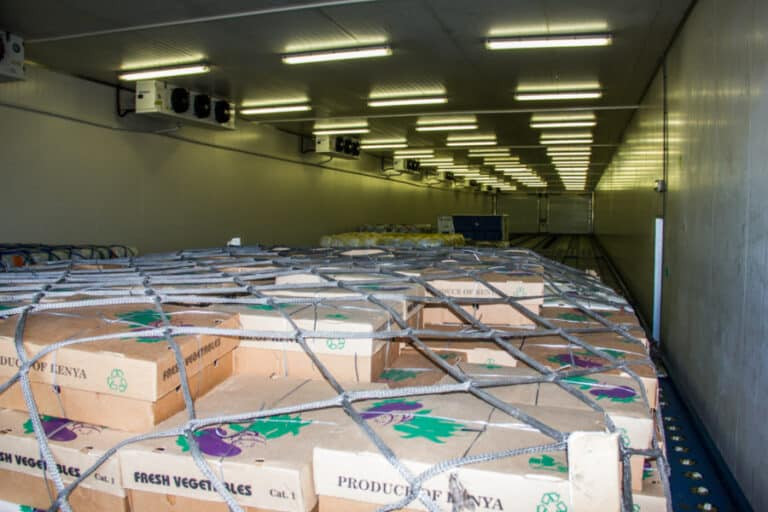Perishables make up the bulk of cargo handled by Siginon Aviation at Jomo Kenyatta International Airport (JKIA) in Nairobi.
This consists of flowers, which are 80 per cent of perishables it handles with the other 20 per cent vegetables and herbs.
But aviation divisional manager, Jared Oswago (pictured below) says performance has been affected in the third quarter: “In Q3 (June to September) we registered a slight decline in exports due to Brexit and other factors. However, perishables will remain strong and positive until close of the year.”
The demand for perishables will grow in Oswago’s view as the offering improves as local industry players adopt best practices in farming, handling, and cool chain, contributing a better product for exporters.
He notes: “The emergence of direct new markets such as Russia, CIS, Far East, Middle East, Australia, US has reduced Kenya’s reliance on traditional markets in Europe and with it brought about new opportunities.”
In JKIA, exports predominantly comprise of perishables while for import cargo Siginon largely handles fruits and general cargo such as motor vehicles, spare parts and machinery.
Oswago anticipates Siginon will grow the number of carriers it handles cargo for from the 10-plus now, which includes Singapore Airlines Cargo, Cargolux and Astral Aviation, while it will invest more in ground handling facilities.
He adds: “Additional belly freighter capacity in and out of Kenya such as Saudia Airlines, Turkish Airlines, Singapore, and Emirates has created greater capacity for both imports and exports for Kenya.”
There are operating challenges Oswago says such as increased terrorism, which has made investment in security systems a priority. He adds: “Brexit and international restrictions such as unresolved floriculture tax quotas on flowers from Africa into Europe and Brexit have brought out uncertainty to key players in air cargo.”
And in Kenya, the cost of doing business remains high with high costs of electricity, labour and various taxation regions to enable operations, while poor infrastructure in Kenya and Africa remains a concern as hampers the movement of produce from farm to market affecting time and quality.
Oswago notes: “2017, being an election year in Kenya, it is likely inbound cargo will drop as most middle men reduce or hoard stock in anticipation of shortage and fetching better prices from the market.”
But he says opportunities include more airlines operating in intra-Africa, the discovery of new markets, new multinational firms opening in Kenya, while the discovery of fossil fuels in the region will boost business.





